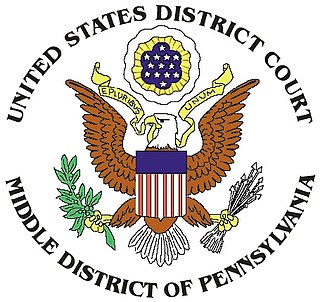Intelligent design (ID) is a pseudoscientific argument for the existence of God, presented by its proponents as "an evidence-based scientific theory about life's origins". Proponents claim that "certain features of the universe and of living things are best explained by an intelligent cause, not an undirected process such as natural selection." ID is a form of creationism that lacks empirical support and offers no testable or tenable hypotheses, and is therefore not science. The leading proponents of ID are associated with the Discovery Institute, a Christian, politically conservative think tank based in the United States.
John Corrigan "Jonathan" Wells was an American biologist, theologian, and advocate of the pseudoscientific argument of intelligent design. Wells joined the Unification Church in 1974, and subsequently wrote that the teachings of its founder Sun Myung Moon and his own studies at the Unification Theological Seminary and his prayers convinced him to devote his life to "destroying Darwinism."

Kenneth Raymond Miller is an American cell biologist, molecular biologist, and Professor Emeritus of Biology at Brown University. Miller's primary research focus is the structure and function of cell membranes, especially chloroplast thylakoid membranes. Miller is a co-author of a major introductory college and high school biology textbook published by Prentice Hall since 1990.

Recurring cultural, political, and theological rejection of evolution by religious groups exists regarding the origins of the Earth, of humanity, and of other life. In accordance with creationism, species were once widely believed to be fixed products of divine creation, but since the mid-19th century, evolution by natural selection has been established by the scientific community as an empirical scientific fact.

The Center for Science and Culture (CSC), formerly known as the Center for the Renewal of Science and Culture (CRSC), is part of the Discovery Institute (DI), a conservative Christian think tank in the United States. The CSC lobbies for the inclusion of creationism in the form of intelligent design (ID) in public-school science curricula as an explanation for the origins of life and the universe while trying to cast doubt on the theory of evolution. These positions have been rejected by many in the scientific community, which identifies intelligent design as pseudoscientific neo-creationism, whereas the theory of evolution is the accepted scientific consensus.
The intelligent design movement is a neo-creationist religious campaign for broad social, academic and political change to promote and support the pseudoscientific idea of intelligent design (ID), which asserts that "certain features of the universe and of living things are best explained by an intelligent cause, not an undirected process such as natural selection." Its chief activities are a campaign to promote public awareness of this concept, the lobbying of policymakers to include its teaching in high school science classes, and legal action, either to defend such teaching or to remove barriers otherwise preventing it. The movement arose out of the creation science movement in the United States, and is driven by a small group of proponents. The Encyclopædia Britannica explains that ID cannot be empirically tested and that it fails to solve the problem of evil; thus, it is neither sound science nor sound theology.

The Wedge Strategy is a creationist political and social agenda authored by the Discovery Institute, the hub of the pseudoscientific intelligent design movement. The strategy was presented in a Discovery Institute internal memorandum known as the Wedge Document. Its goal is to change American culture by shaping public policy to reflect politically conservative fundamentalist evangelical Protestant values. The wedge metaphor is attributed to Phillip E. Johnson and depicts a metal wedge splitting a log.
The "Teach the controversy" campaign of the Discovery Institute seeks to promote the pseudoscientific principle of intelligent design as part of its attempts to discredit the teaching of evolution in United States public high school science courses. Scientific organizations point out that the institute claims that there is a scientific controversy where in fact none exists.
The Kansas evolution hearings were a series of hearings held in Topeka, Kansas, United States from May 5 to 12, 2005 by the Kansas State Board of Education and its State Board Science Hearing Committee to change how evolution and the origin of life would be taught in the state's public high school science classes. The hearings were arranged by the Board of Education with the intent of introducing intelligent design into science classes via the Teach the Controversy method.

Barbara Carroll Forrest is a professor of philosophy at Southeastern Louisiana University in Hammond, Louisiana. She is a critic of intelligent design and the Discovery Institute.

Kitzmiller v. Dover Area School District, 400 F. Supp. 2d 707 was the first direct challenge brought in the United States federal courts testing a public school district policy that required the teaching of intelligent design (ID), ultimately found by the court to not be science. In October 2004, the Dover Area School District of York County, Pennsylvania, changed its biology teaching curriculum to require that intelligent design be presented as an alternative to evolution theory, and that Of Pandas and People, a textbook advocating intelligent design, was to be used as a reference book. The prominence of this textbook during the trial was such that the case is sometimes referred to as the Dover Panda Trial, a name which recalls the popular name of the Scopes Monkey Trial in Tennessee, 80 years earlier. The plaintiffs successfully argued that intelligent design is a form of creationism, and that the school board policy violated the Establishment Clause of the First Amendment to the United States Constitution. The judge's decision sparked considerable response from both supporters and critics.
The intelligent design movement has conducted an organized campaign largely in the United States that promotes a pseudoscientific, neo-creationist religious agenda calling for broad social, academic and political changes centering on intelligent design.
Flock of Dodos: The Evolution-Intelligent Design Circus is a documentary film by American marine biologist and filmmaker Randy Olson. It highlights the debate between proponents of the concept of intelligent design and the scientific evidence and consensus that supports evolution, as well as the potential consequences of science rejection.

Kansas State Department Board of Education (KSDE) is Kansas's Board of Education, headquartered in Topeka. The board of education that controls the department is a constitutional body established in Article 6 of the Kansas Constitution. The ten members of the Board of Education are each elected to four-year terms. The Board helps determine educational policy for the state's primary and secondary schools.
The Discovery Institute has conducted a series of related public relations campaigns which seek to promote intelligent design while attempting to discredit evolutionary biology, which the Institute terms "Darwinism". The Discovery Institute promotes the pseudoscientific intelligent design movement and is represented by Creative Response Concepts, a public relations firm.

This timeline of intelligent design outlines the major events in the development of intelligent design as presented and promoted by the intelligent design movement.

Expelled: No Intelligence Allowed is a 2008 American documentary-style propaganda film directed by Nathan Frankowski and starring Ben Stein. The film contends that there is a conspiracy in academia to oppress and exclude people who believe in intelligent design. It portrays the scientific theory of evolution as a contributor to communism, fascism, atheism, eugenics, and in particular Nazi atrocities in the Holocaust. Although intelligent design is a pseudoscientific religious idea, the film presents it as science-based, without giving a detailed definition of the concept or attempting to explain it on a scientific level. Other than briefly addressing issues of irreducible complexity, Expelled examines intelligent design purely as a political issue.
Judgment Day: Intelligent Design on Trial is a documentary on the case of Kitzmiller v. Dover Area School District—which concentrated on the question of whether or not intelligent design could be viewed as science and taught in school science class. It first aired on PBS stations nationwide, on November 13, 2007, with many reruns, and features interviews with the judge, witnesses, and lawyers as well as re-enacted scenes using the official transcript of the trial.

The Voyage That Shook The World is a 2009 dramatised documentary film commissioned by Creation Ministries International, a Christian Young Earth creationist organisation, and produced by Fathom Media. It was released to mark the 200th anniversary of Charles Darwin's birth and the 150th anniversary of the publication of his seminal work On the Origin of Species.
In American schools, the Genesis creation narrative was generally taught as the origin of the universe and of life until Darwin's scientific theories became widely accepted. While there was some immediate backlash, organized opposition did not get underway until the Fundamentalist–Modernist controversy broke out following World War I; several states passed laws banning the teaching of evolution while others debated them but did not pass them. The Scopes Trial was the result of a challenge to the law in Tennessee. Scopes lost his case, and further U.S. states passed laws banning the teaching of evolution.








